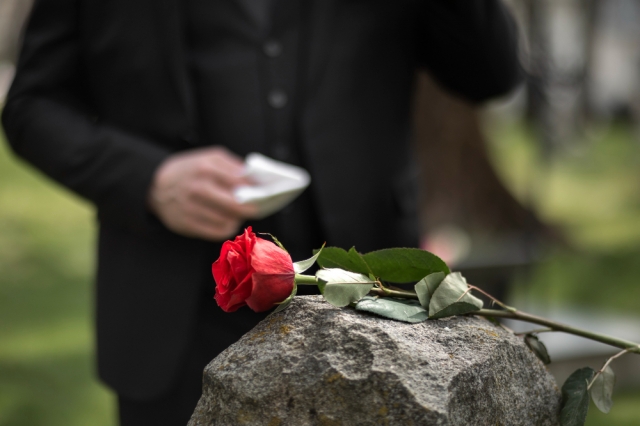What does it mean to truly say goodbye to a loved one? As humans, our lives are marked by rituals that bring comfort, structure, and meaning to life's most profound moments. Funerals are one of the most significant rituals we have to process loss and find closure. But why do these ceremonies hold such power, and how can they help us navigate grief?
Understanding the Role of Funerals in Grief and Healing
Funerals are more than a gathering of family and friends; they are an essential ritual that offers solace, closure, and the chance to honor the life of a loved one. In moments of intense grief, people need a structured way to process their emotions. Funerals provide a supportive environment to express sorrow, share memories, and connect with others who are also grieving.
In modern times, many funeral directors have adapted to offer personalized ceremonies, helping families create meaningful tributes that reflect the uniqueness of the individual who has passed. These ceremonies can be deeply comforting, providing a sense of stability and familiarity in an otherwise difficult time.
The Healing Power of Rituals
Psychologically, rituals are essential for coping with loss. They create a structured space to acknowledge emotions, offer support to one another, and foster a sense of community. Funerals serve as a formal acknowledgment of a person's life and their impact on those around them. This acknowledgment is vital for healing, as it provides a public space to grieve and validate feelings of loss.
When planning a funeral, funeral homes work with families to create a service that captures the spirit of the loved one. This personalization enables mourners to feel connected to the deceased, allowing them to say goodbye in a meaningful and emotionally fulfilling way.
How Funeral Homes Support Families During Loss
Compassionate Guidance
Funeral homes provide more than just logistical support—they offer a compassionate hand during one of life's most challenging times. Funeral directors understand the complexities of grief and offer empathetic guidance, helping families navigate decisions that they may feel unprepared to make.
Choosing a casket, selecting a venue, arranging transportation, and deciding on ceremony details can feel overwhelming. Funeral homes help ease this burden, providing resources and expert advice to make each decision as straightforward as possible. For many, this support helps lessen the strain of planning, allowing them to focus more fully on their emotional needs and those of their loved ones.
Creating a Personalized Experience
Funeral homes increasingly offer tailored services, from video tributes to unique settings and personalized ceremonies. This customization allows families to reflect the personality and values of their loved one, making the service a truly personal farewell.
For instance, a funeral may include favorite songs, video montages, or symbolic rituals that resonate with the family. These personalized touches offer comfort by reflecting the deceased's life, making the service a true celebration of who they were.
The Psychological Benefits of Funerals for Mourners
Acknowledging Loss Publicly
One of the essential purposes of a funeral is to acknowledge the reality of death. For those left behind, denial and avoidance can be common responses to grief. Funerals allow for a formal acknowledgment of loss, helping mourners come to terms with the reality of the situation.
By attending a funeral, mourners face the finality of death in a supportive environment, which is essential for emotional healing. Funeral homes understand the importance of creating an atmosphere that allows family members to feel safe as they navigate these emotions.
Providing Social Support
Funerals bring together a community of people who cared about the deceased, offering a social support network for those grieving. By sharing stories, comforting one another, and collectively honoring the departed, families and friends can experience a sense of unity and belonging. This sense of connection is vital, as isolation is a common feeling in grief.
The presence of loved ones, facilitated by funeral homes, reminds mourners that they are not alone. This support can make a profound difference, providing strength and comfort in the days and weeks following the funeral.
Encouraging Emotional Expression
Funerals offer a socially acceptable way to express deep emotions, from sorrow and anger to love and gratitude. In many cultures, showing strong emotion in daily life can be uncomfortable, but funerals provide a space where expressing grief is welcomed and encouraged.
The shared experience of loss, made possible by funeral homes, creates an environment where mourners can feel free to cry, laugh, or simply be silent. This open acknowledgment of emotion allows for a release that is vital for healing, allowing mourners to let go of pent-up feelings and start to process their loss.
How Funeral Homes Facilitate Closure
Rituals That Bring Closure
Closure is often one of the most elusive aspects of grief. Funerals, with their rituals and formalities, create a sense of finality that can help mourners begin to move forward. Rituals such as saying a few final words, placing a flower on the casket, or participating in a burial can provide a tangible way to say goodbye.
Funeral homes guide families through these rituals, ensuring that each aspect of the ceremony is handled with respect and sensitivity. These rituals, though simple, have a profound effect on helping loved ones accept the loss.
The Importance of Memory in Healing
Funerals provide a time to share stories, celebrate memories, and honor the life lived. This focus on memory is essential, as it allows mourners to reflect on the positive moments they shared with their loved one. Funeral homes often encourage families to bring photos, write eulogies, and create tributes that capture the deceased's life and legacy.
By celebrating memories, mourners can find comfort in knowing their loved one's legacy will continue. This act of remembrance offers a comforting reminder of the impact the deceased had on their lives, aiding in the healing process.
Funerals hold a profound power to help us navigate grief, heal, and find closure. As one of life's most important rituals, a funeral allows us to gather, remember, and say goodbye in a meaningful way. Funeral homes provide the guidance and support necessary to create a service that honors a loved one's life while offering a foundation for healing.






